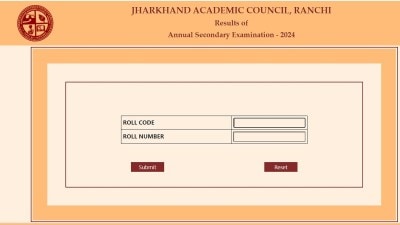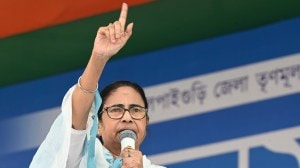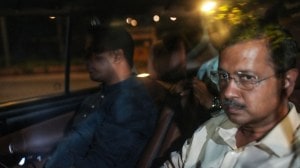- India
- International
Revisiting Charles Dickens’ Hard Times: Narendra Modi and the myth of a self-made man
The rhetoric of ‘if a chai wallah can become the PM why can’t you?’ is dishonest on several counts.
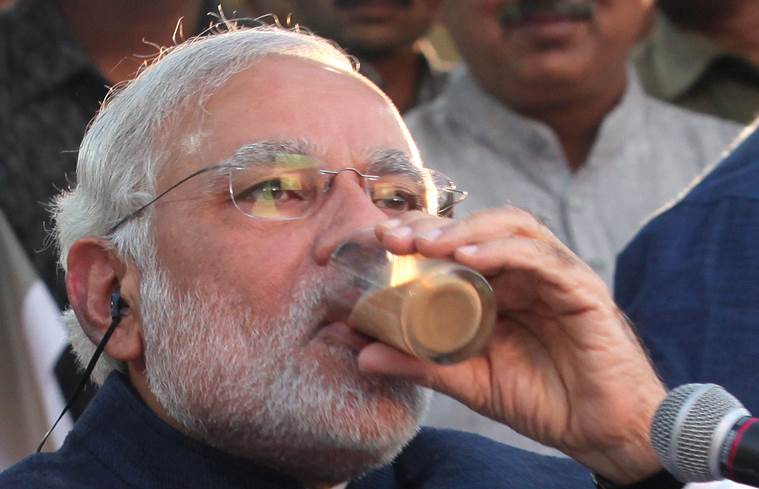 Prime Minister Narendra Modi is a good example of someone who uses his tea seller origins story to his political advantage and the people lap it up, even though no official records exist to show that he was indeed one. File/Express Photo/Javed Raja
Prime Minister Narendra Modi is a good example of someone who uses his tea seller origins story to his political advantage and the people lap it up, even though no official records exist to show that he was indeed one. File/Express Photo/Javed Raja
Charles Dickens describes Mr Josiah Bounderby, a rich merchant and a banker, of the fictional town of Coketown of industrial England thus:
“A man who could never sufficiently vaunt himself a self-made man. A man who was always proclaiming, through that brassy speaking trumpet of a voice of his, his old ignorance and his old poverty. A man who was the bully of humility.”
Mr Bounderby claims to have been born in abject poverty, abandoned by his family and his ultimate boast lies in the fact that he is a self-made man, “with nobody to thank for my being here, but myself.” From the position of this dubious distinction Bounderby feels morally obligated to blame the poor for their poverty and hopes his rags to riches story serves as a reminder of what a man can achieve through hard work and determination. The story would have been interesting and inspirational indeed, as is often the case in literature and real life, expect that it is false. It is revealed at the end of the novel that Bounderby was never abandoned by his loving mother, indeed he had forbidden her from contact to protect his mythic origins story, and was brought up though not extravagantly, but still comfortably with abundance of books and food.
Dickens variously describes Bounderby as a ‘bully of humility’ and a self-made humbug. Bounderby serves as an example of a man very rare in literature but plenty in real life. A man, who lives on the myth of self-aggrandisement, achieved by claiming to have climbed the ladder of success with no familial support, indeed through dire hardships, poverty and discrimination. Why do these stories continue to flourish even today? One of the reasons is that people love the rags to riches narrative and celebrate a self-made man. The myth continues unabated and is celebrated most notably by the media. Everyone loves an underdog, the rise of the subaltern.
Prime Minister Narendra Modi is a good example of someone who uses his tea seller origins story to his political advantage and the people lap it up, even though no official records exist to show that he was indeed one.
In fact, it is believed he was the son of a canteen contractor, making his origins better than what national and even international media wants one to believe. Nikita Sud writes in Tehelka, ‘Of dynasties and Parivars’, “The image of a hardworking young Modi, selling tea on Indian Railways, is an endearing one. But let’s get our economic facts straight here. The son of anyone who managed to get a catering spot at a government facility in licence-permit raj India is no poor hawker” and points to the basic difference between capital, even petty capital, and labour.

Modi has done much to encourage this humble beginning narrative, repeating it often in rallies and even meeting his mother under the glare of cameras. Recently he brought up his tea seller origins during his campaign in Assam. And while his campaign for the 2014 Lok Sabha election was one of the most expensive campaigns ever with 3D holograms and sophisticated PR exercises, BJP’s social media continues to peddle photo shopped images of Modi on a man holding a broom to keep up this myth.
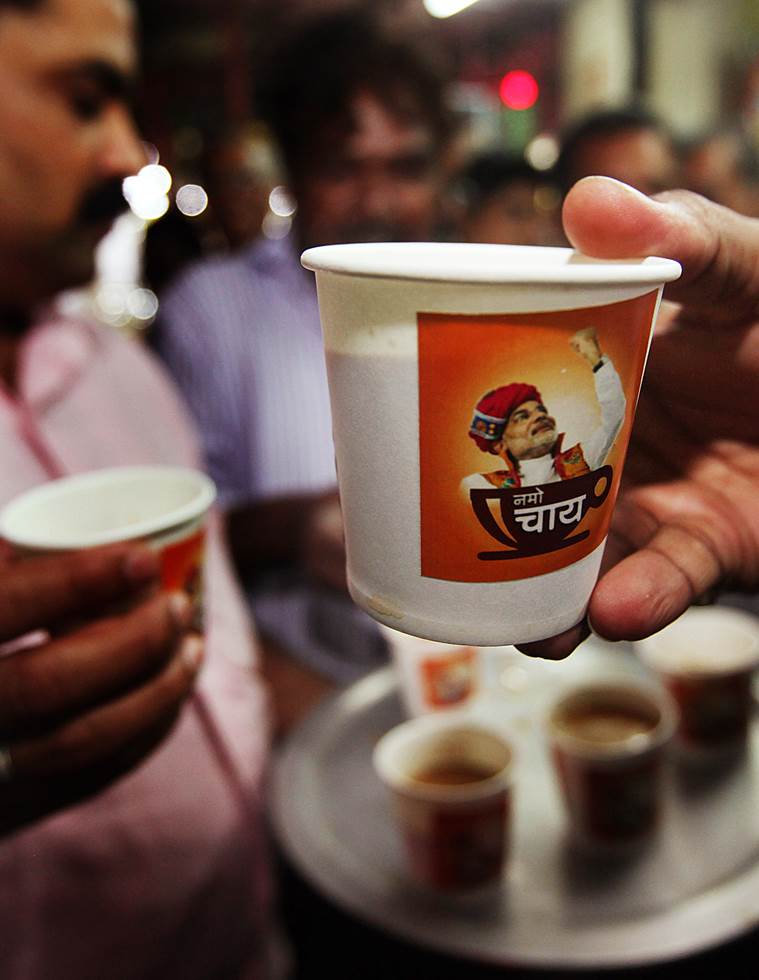 Modi has done much to encourage this humble beginning narrative, repeating it often in rallies and even meeting his mother under the glare of cameras. Express Photo/Pradip Das
Modi has done much to encourage this humble beginning narrative, repeating it often in rallies and even meeting his mother under the glare of cameras. Express Photo/Pradip Das
Such a falsely constructed narrative is dangerous in a country where a large number of people are trapped in the vicious cycle of poverty and deprivation. A false narrative of meritocracy and of a self-made man, someone who can overcome his circumstance through sheer grit, can lead to society and the state absolving themselves of any responsibility of others and their poverty. It can give rise to the problematic discourse where poor are blamed for their own poverty which is erroneously seen as a result of their so called poor choices, refusal to work hard, or ignorance. This is completely flawed in a country where state support is mostly absent and prohibitions imposed by caste, class, and gender make it almost impossible for most to fight their circumstance and greatly restrict social mobility.
The rhetoric of ‘if a chai wallah can become the PM why can’t you?’ is dishonest on several counts. First of all, a closer look into a large number of these narratives shows that they are simply not true, in this case, a result of election propaganda.
Second, putting the sole onus of the success on a person can only be justified if the playing field is equal; the responsibility of such a level playing field belongs to the state for provision of nutrition, housing, education, safety, health and freedom. This seldom happens. Individuals rarely start equally, and wealth, geography, parental income, gender, and caste make a huge difference in determining success. Third, such a myth greatly inflates the prospects available to the poor and disenfranchised. Thus instead of false feel good stories about man making it big against all odds, what is required is a thorough examination of various societal and material barriers that a person faces and working towards a more equitable society.
As for Dickens’s character Bounderby, abandoned by his wife, and exposed for his lies, dies in a fit of “Bounderby balderdash and bluster” thereby ending a “long career of quibble, plunder, false pretences, vile example, little service and much law” and with it, the carefully perpetuated myth of being a self-made man.
Apr 19: Latest News
- 01
- 02
- 03
- 04
- 05











